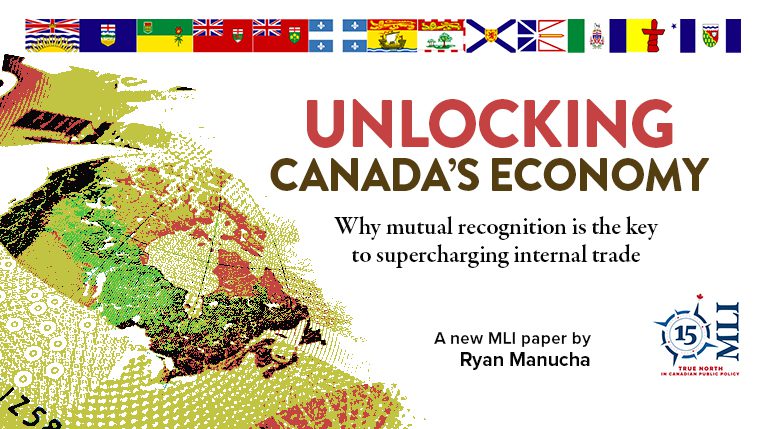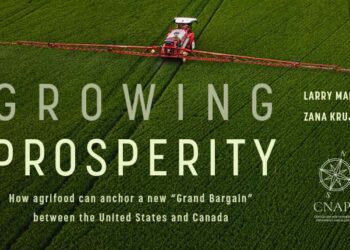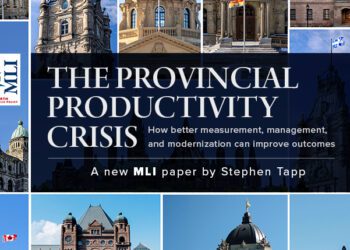OTTAWA, ON (April 8, 2025):
Canadians are paying more for everything from groceries to housing because governments have failed to eliminate the barriers that divide the national economy.
Internal trade rules remain a tangled web of conflicting provincial regulations that block the free movement of goods, services, and workers. These inefficiencies inflate costs and are adding pressure to the country’s housing and health care crises.
A new report from the Macdonald-Laurier Institute, Unlocking Canada’s Economy: Why Mutual Recognition is the Key to Supercharging Internal Trade, authored by interprovincial trade expert Ryan Manucha, lays out the full economic cost of these barriers and presents a transformative legislative solution.
The answer, according to the report, is a legislative tool known as Mutual Recognition (MR) – a simple, proven model used in other jurisdictions like Australia and the EU. It allows each province to keep its own standards but requires them to recognize the standards of other provinces. No more duplicative licencing, redundant inspections, or requalification processes. Just one market, across one country.
Despite decades of agreements and regulatory forums, there has been little real progress. A major federal-provincial initiative to implement MR has stalled, and Canadians are left to foot the bill for broken promises and bureaucratic inertia.
The report calls for binding mutual recognition legislation. This approach would finally break down the barriers that have long punished consumers and held back business growth. According to Manucha, “enshrining mutual recognition in legislation would be one of the most significant developments for Canada’s economy since Confederation.”
This is not just a matter of economic efficiency. It’s a matter of fairness. Workers should not face unnecessary obstacles when trying to move between provinces. Businesses should not have to navigate a thicket of inconsistent rules to expand across Canada. And Canadians should not be forced to pay more simply because governments refuse to coordinate.
The tools to fix the problem exist. The benefits are undeniable. And the path forward is clear. What Canada needs now is action, not more talk
To learn more, read the full paper here:
For further information, media are invited to contact:
Dagny Pawlak-Loerchner
Senior Communications Officer
613-482-8327 x113
dagny.pawlak-loerchner@macdonaldlaurier.ca







